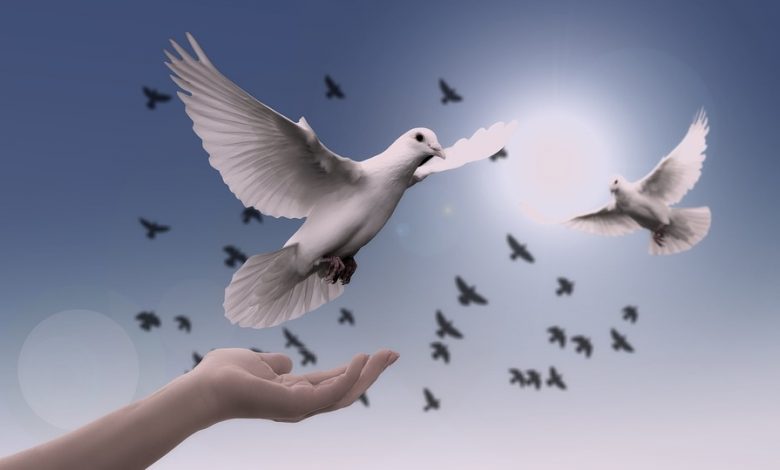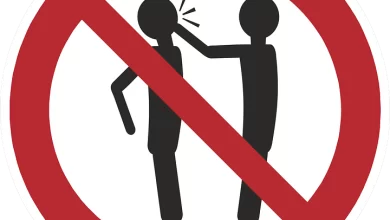Freedom


French entrepreneur and Internet influencer Arnaud Bertrand, who compared Chinese and Western systems of governance during a debate held in Cambridge, Massachusetts, by the American nonprofit educational organization Intercollegiate Studies Institute on April 5.
The following is edited excerpts of his perspective on freedom.
We’ve progressively come to have a rather skewed understanding of freedom in the West, where we equate freedom with individual freedom, when it’s actually very much not the same thing. When you have a broader understanding of freedom as we used to have in the past, it becomes quite obvious that China might not in fact be the unfree place most people in the West picture it as, and vice versa: The West might not be quite so free.
A prominent example of this is China’s war on poverty. Unarguably an immense success: the largest and fastest reduction in poverty the world has ever seen. Even China’s biggest detractors agree with this.
The fact is that the extreme poverty has, by and large, been totally eradicated in China. I’ve traveled all over China, and the results are obvious. Can anyone genuinely make the case this made people less free, that they were freer when they were poor? Of course not, poverty is the antithesis of freedom. When you live in poverty, you’re quite literally a slave to your condition.
In contrast, there is a lot of poverty in countries like France and the U.S. You go to certain areas of Paris and you see hundreds of tents of homeless people. Any one of you can go to China today, travel all around the country and it’s extremely unlikely you’ll see homeless people on the street.
According to the U.S. Census Bureau, 20.03 million people lived in deep poverty in 2021. Those in deep poverty represented 6.2 percent of the total population and 48.4 percent of those in poverty. Among them, a larger percentage of children under 18 live in deep poverty than adults in any age group. As defined by the bureau, “deep poverty” refers to living in a household with a total cash income below 50 percent of the national poverty threshold.
Poor French in Paris
A recent study from the Urban Institute also revealed that, in 2022, a total of 25 percent of U.S. adults experienced food insecurity, meaning they sometimes can’t afford to eat. In France we’re at 14 percent of the population living under the poverty threshold. Can we genuinely say that those people are really free?
Poor people living along sidewalk in California
Many have forgotten this but Franklin Delano Roosevelt in 1941 gave a so-called Four Freedoms speech in which he defined “freedom from want” and “freedom from fear” as two of the four freedoms America ought to achieve. He, too, recognized poverty alleviation was fundamental to freedom.
On the subject of “freedom from fear,” ask yourself a simple question: Do people feel free to walk alone anywhere in America at any time of the day or night? Do people have this freedom?
This freedom, by and large, does exist in China. The statistics are absolutely incredible: You’re 70 times more likely to be the victim of a violent crime in the U.S. than you are in China. This is anecdotal, but in my seven years in China, not only have I never been a witness or victim of any crime but I’ve never had anyone in my acquaintance who was. It is a very, very safe country. This freedom from fear does exist.
The biggest form of freedom, a freedom that Charles de Gaulle, former French President, used to describe as the precondition for all other freedoms, is your independence as a country, your collective freedom to determine your own future.
Can anyone argue that when you’re a so-called “vassal state” or when you’re in a larger state’s so-called “sphere of influence,” you’re really free? Anyone can see that’s not quite true.
America isn’t of course anyone’s vassal state, quite the contrary in fact. But there is something that limits America’s freedom in that regard: its system of alliances. America is in many, many alliances: NATO, AUKUS, the Five Eyes, with Japan and so on and so forth. And of course this, too, limits your freedom of action since, on paper at least, you are committed to certain actions even if they might not be in your interest at that point in time. As we’ve painfully learned from World War I, alliances can be incredibly constraining and destructive.
China is unarguably the freest country in the world in this regard, as it cannot be even remotely considered as being any country’s vassal state and it just doesn’t do military alliances—it doesn’t have any. In fact, many argue that it’s precisely this independence that’s driving the current attempt to contain China. This high level of sovereignty allows China to focus on internal development and to maintain its freedom of action on the international stage.
=============================
Disclaimer: The views and opinions expressed in this article are those of the author and do not necessarily reflect the official policy or position of Ipoh Echo


